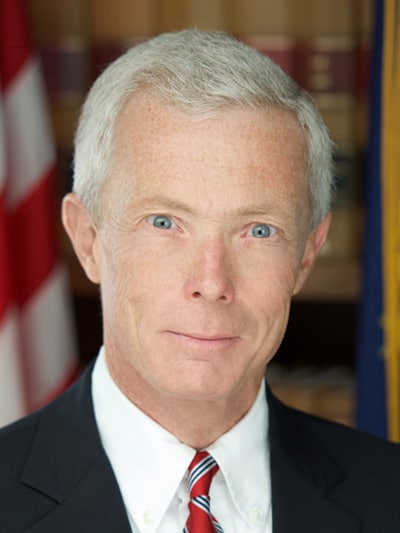On Friday, former Attorney General Gordon MacDonald was confirmed as Chief Justice of the New Hampshire Supreme Court—the state’s highest judicial office. Thanks to the incisive questioning of Councilor Dave Wheeler during Thursday’s hearing, the confirmation came after MacDonald stated that constitutional rights are not suspended in periods of emergency.
Before casting his vote on Friday, Wheeler explained that MacDonald’s statements on the Constitution were critical to his vote. “I am going to vote for him today because I believe that he said he would not suspend the Constitution and he would follow the direction of the United States Supreme Court,” said Wheeler. Another Republican councilman, Joe Kenney, also expressed concerns about emergency orders during MacDonald’s confirmation hearing.
This issue has been of great concern to us at Cornerstone, as the Attorney General’s office had previously argued that constitutional rights are suspended during states of emergency. As stated in the Superior Court decision Binford, et. al. v. Sununu, “the State contends [that] during a state of emergency, executives are granted broad latitude to suspend civil liberties.”
This theory means that courts do not enforce constitutional rights such as the First Amendment when emergency orders are challenged, leaving the people of New Hampshire with no legal recourse to contest anything done in the name of an emergency. .
On Thursday, however, MacDonald said that the law had developed since the Binford case. He indicated that he had accepted arguments made by Justice Neil Gorsuch in the landmark Brooklyn Diocese decision. In a concurring opinion, Gorscuh argued that there was no reason “why anything other than our usual constitutional standards should apply during the current pandemic.”
In responding to Wheeler, MacDonald says he understands current Supreme Court case law to mean that in a state of emergency “you should not deviate from the scrutiny you would otherwise apply to constitutional rights.”
MacDonald said that “standard levels of scrutiny should be applied to orders such as this: I think that’s a fair statement of where the US Supreme Court is now.” When Wheeler asked if a more protective standard now applies when emergency orders are challenged, MacDonald stated: “A more exacting standard, yes.” This means that state actions must satisfy a meaningful test in order to show that they are in compliance with the Constitution.
“One of my biggest concerns was how he handled the emergency orders,” Wheeler said at the Friday Executive Council hearing. “We had a very long conversation about that.”
Wheeler indicated that he and MacDonald had agreed that, under current Supreme Court law, “the level of constitutional scrutiny when deciding what orders are legal or not must be normal scrutiny. I know that’s legal jargon, but normal means the highest. It means you must give it the highest level of scrutiny whether there’s an emergency going on or not.”
We at Cornerstone are grateful to Councilor Wheeler for questioning MacDonald on this critical issue and protecting the constitutional rights of Granite Staters. With more and more Democrats at the federal level calling for the end of judicial independence—and, by extension, constitutional government itself—it is more important than ever that Americans look to their state governments and judiciaries to protect their fundamental rights.


